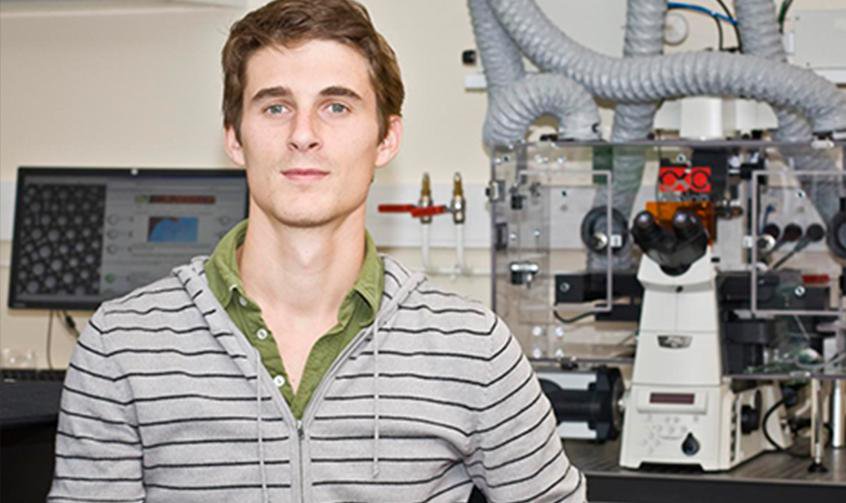"'Reveal details that matter.’’ This is the catch phrase adopted by Rémi Dangla for the genetic analysis firm that he created shortly after his PhD, Stilla Technologies. When the “details” he refers to are the genes allowing the early diagnosis of diseases, we do understand why they matter so much, and why they are so difficult to track.
Yet, Dangla's application to genetic analysis of micro-fluid dynamics methods – the first area of expertise of this young engineer turned entrepreneur – may prove a remarkable breakthrough for him and potentially thousands of genetic researchers in bio-medicine who need high-resolution tools for their increasingly complex analyses.
It was during his PhD thesis at the Hydrodynamics Laboratory of the Polytechnic School of Palaiseau (France) that Dangla discovered the great potential of application of his studies to genetic research. He was studying microfluidodynamics and particularly, how to separate a single drop of blood into many micro-droplets to facilitate their analysis, and manipulate them based on their physical properties, which is a process increasingly adopted in genetic analysis and known as Digital-PCR (Polymerase Chain Reaction). Millions of micro-samples are checked in parallel against a specific DNA sequence, and this increases the likelihood of finding rare sequences, including alleles (i.e. different forms of the same gene). Quantifying cancer genes in patient specimens or detecting fetal DNA in circulating blood are some of the practical outcomes of this analysis.
Upon completion of his PhD, Dangla's entrepreneurial spirit encouraged him to place is researches on stand-by (“but I may go back to basic research” he likes to say) to create Stilla Technologies, which developed a prototype of Digital-PCR (Polymerase Chain Reaction) platform.
“We aim to provide a comprehensive platform that integrates with existing tools in the diagnostic domain, whether clinical or industrial,” says the 20-year-old, excited at the next phase of practical tests within biolaboratories and agroalimentary businesses in 2015, which will greatly enhance his product. “This is the most exciting phase, when all my researches finally turn into a tangible product,” he adds. According to Jean-Charles Caillez, Molecular Biology professor and Vice-president of the Innovation & Development at Lille Catholic University, Dangla's technology may considerably help progress in medical research, oncology, and virology. Considering that the market for Digital-PCR is expected to grow by 28,3% annually in the next 4 years, Dangla's enthousiasm is well placed."




